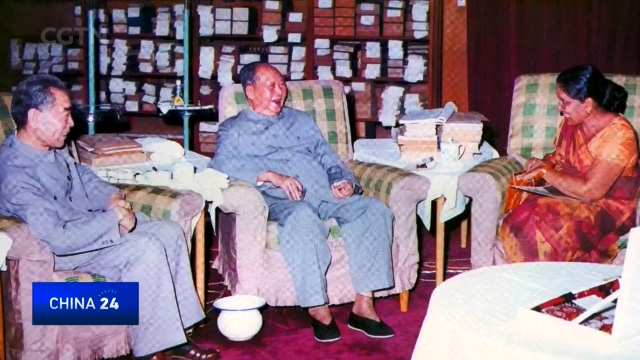
22:49, 09-Aug-2018
China Craftsman: Traditional Beijing shoemaker tapping into the future
Updated
21:57, 12-Aug-2018
02:18

A 150-year-old shoe-making business in the Chinese capital, Beijing is still going strong on its original designs. Where the clogs were once reserved for the privileged few, the current owner is now looking to tap into the hearts of China's young people. CGTN's WANG QIWEI has more.
Sewing and hammering, stitch by stitch, after four or five days, and using dozens of specialized tools. A new pair of shoes -- know for their traditional "thousand-layer" soles and hand-stitched fabric uppers -- are created.
CAI WENKE SHOEMAKER, NEILIANSHENG SHOE SHOP "The making of a handmade shoe like this takes almost 100 steps in the whole production process, and each step is finished by hand. Wearing these shoes can absorb sweat, keep the feet in good health and let them breathe."
Cai Wenke, a craftsman at Neiliansheng, learned his trade almost a decade ago, and he is certainly devoted to the pursuit of perfection.
CAI WENKE SHOEMAKER, NEILIANSHENG SHOE SHOP "And we compare the end of the shoes. The two shoes need to be exactly the same, and there shouldn't be any error, so when the customers wear them, they will feel comfortable."
Dating back to the Qing Dynasty in the 19th Century, Neiliansheng's shoes were made especially for the elite.
Like holding a Louis Vuitton bag now, wearing a pair meant fortune and status back then.
Countless politicians and celebrities -- from Mao Zedong and Deng Xiaoping to Jackie Chan -- are among its satisfied customers.
And now Cai is trying to tap into the minds of millenials, and turn something old into something new.
CAI WENKE SHOEMAKER, NEILIANSHENG SHOE SHOP "Now we choose the style, material and pattern based on the needs of youngsters, and we cooperate with famous movies and TV shows. The products we design are loved by a lot of young people."
Neiliansheng makes over 300 varieties of shoes, all based on original designs.
Open-toed sandals, cartoon characters, embellished with feathers and pearls from Chinese opera performers.
Could these traditional hand-made shoes become a modern-day fad? Wang Qiwei, CGTN.

SITEMAP
Copyright © 2018 CGTN. Beijing ICP prepared NO.16065310-3
Copyright © 2018 CGTN. Beijing ICP prepared NO.16065310-3